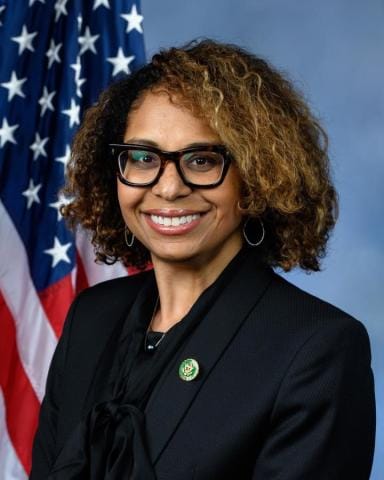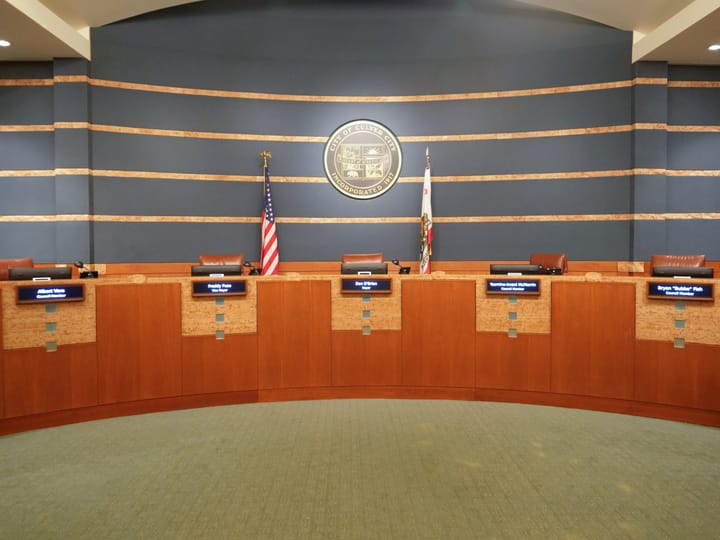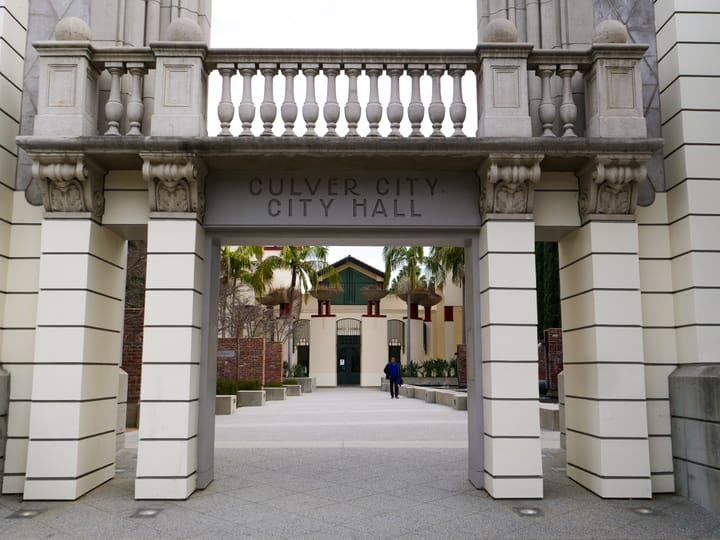Kamlager-Dove, Lee Introduce Bipartisan Fresh Start Act
Congresswoman Sydney Kamlager-Dove represents California's 37th Congressional District, which includes Culver City.

Representatives Sydney Kamlager-Dove (D, CA-37) and Laurel Lee (R, FL-15) introduced the Fresh Start Act, a bipartisan bill to provide support for rehabilitated individuals to have access to employment, housing, and educational opportunities. The congresswomen spoke at a press conference this past Wednesday to highlight the Fresh Start Act's introduction, which can be viewed here.
Approximately one-third of Americans have criminal records. While many of them qualify for record-sealing or expungement under state laws, the process is frequently complicated, time-consuming, and costly. The Fresh Start Act would allow states that have enacted automated record-sealing or expungement laws to apply for federal infrastructure grants to help streamline the process.
“No one should be denied a job, housing, or education because of bureaucratic red tape,” said Rep. Kamlager-Dove. “Millions of Americans have arrest or conviction records that are eligible to be sealed or expunged, yet many are blocked by confusing, burdensome, and costly processes. I’m proud to cosponsor the bipartisan Fresh Start Act, which helps individuals who have been exonerated or who have paid their debts to society get a chance to contribute to their communities. This legislation will give states the resources they need to implement automatic record clearance systems that offer people a fresh start.”
“People who have worked to turn their lives around after a criminal conviction deserve the opportunity to move forward, not be held back by administrative barriers. Today, nearly one-third of Americans have a criminal record that can prevent them from getting a job, finding housing, or pursuing education—even when they qualify for record-sealing or expungement. The Fresh Start Act of 2025 modernizes and streamlines these processes for states, helping more individuals access the opportunities they’ve earned. I look forward to seeing my colleagues come together to pass this important legislation and ensure that everyone who deserves a second chance has the opportunity to build a better future,” said Congresswoman Laurel Lee.
Sheena Meade, CEO of The Clean Slate Initiative, said, “The Fresh Start Act recognizes what we’ve seen on the ground: Clean Slate has the power to change lives. This legislation is an essential component of modernizing state infrastructure, making sure federal support is spent on common-sense solutions that are serious about safety and benefit communities across the country. A fresh start should be more than a promise; it should be a reality. With the Fresh Start Act, it can be.”
Jason Pye, Executive Director of the Due Process Institute, said, “The Fresh Start Act is a commonsense policy solution to help improve states’ record-sealing laws. The bill crucially allocates already existing funding to help with the implementation of proven recidivism reduction strategies that result in better economic outcomes and safer communities for us all. We urge members of Congress to join in cosponsoring and supporting this bipartisan legislation.”
Akua Amaning, Director of Criminal Justice Reform, Center for American Progress said, “Everyone deserves the opportunity to unlock their full potential. Yet, for far too many people who have been impacted by America’s criminal legal system, a second chance can be hard to achieve with an arrest or conviction record. The Fresh Start Act will provide important resources to states that are working to remove unnecessary barriers to employment, housing, education, and other critical life resources due to having a record. In helping to create pathways to automatic record expungement at the state level, The Fresh Start Act will not only help individuals transform their lives, but will also improve economic security and public safety outcomes for all. We applaud the bipartisan support for this measure and urge Congress to swiftly pass the Fresh Start Act.”
Patrick Plein, Director of CPAC’s Nolan Center for Justice, said, “Communities are safer when individuals returning from prison are given a fair chance to reintegrate into society and rebuild their lives. The Fresh Start Act recognizes that people are more than their past mistakes—they are hard working parents, employees, and neighbors with the potential to prosper. By removing barriers to opportunity, these bills strengthen families, boost our economy, and promote public safety.”
“The Fresh Start Act is a common sense measure that will help give people who have fulfilled their justice system obligations a second chance,” said Nan Gibson, Executive Director of the JPMorganChase Policy Center. “The bill would make federal grants available to states to upgrade their justice system infrastructure so that states can implement Clean Slate legislation and strengthen their workforce. Over the last six years, our firm has hired more than 21,000 people with a record whose history had no bearing on the requirements of their job, because we know implementing fair chance hiring practices is good for our business and the economy. This measure will enable companies like ours to continue to connect individuals to meaningful career pathways, opening doors to opportunities that transform lives, lift up communities and strengthen the workforce.”
The Fresh Start Act builds on the momentum of Clean Slate policies enacted in 2018 by a diverse group of 12 states, including California, Colorado, Connecticut, Delaware, Michigan, Minnesota, New Jersey, New York, Oklahoma, Pennsylvania, Utah, and Virginia. California’s Clean Slate law, SB 731, was co-sponsored by Congresswoman Kamlager-Dove when she was in the California State Senate.
Specifically, the Fresh Start Act would:
- Allow states that have record-sealing or expungement laws in place to apply for a federal grant to help improve their automated record infrastructure.
- Authorize the National Criminal History Improvement Program (NCHIP) to provide grants to states to automate their criminal records programs.
- Make clear that courts and law enforcement must retain access to cleared records.
- Prohibit states that delay record expungement or sealing due to fines or fees from receiving grant funding.
- Require states to report the number of records that have been sealed or expunged, broken down according to race, ethnicity, and gender.
Read the bill text here.




Comments ()